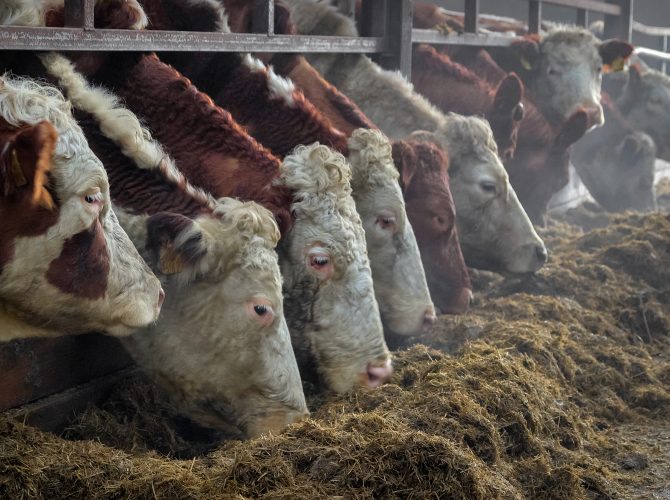Parasite Control at Housing with Fane Valley.
25th October 2021

It has been a very wet autumn and most cattle are now housed. However, for those youngstock that are still grazing, most farms will be thinking about housing them soon. As cattle do not pick up worms or fluke while they are indoors, this is an ideal time to control worms and fluke for the housing period, optimising growth rates and cattle health over winter, preventing production losses. This is because worm and fluke burdens can cause economic losses on farms due to reduced appetite and feed intake leading to detrimental impacts on growth rate.
Gut Worms
All cattle that have been grazing will have been exposed to worms. Generally, adult cattle should have developed an immunity to worms and therefore, treatment is often not necessary. However, younger cattle in their first and second grazing season will be at a higher risk of disease and may need treatment depending on what type of wormer they last received and when. For example, cattle that have received a long-acting wormer that is still has activity prior to housing, may not require an additional ‘housing dose.’ If you are unsure if you need to worm, the Fane Valley vet and qualified RAMA staff in store will be able to give you advice. In the Ballycastle, Claudy, Omagh, Banbridge and Portadown stores, you can bring a faecal sample from a group of cattle which will give us an indication of the worm burden in that group.
Liver fluke
All grazing cattle are at risk of fluke and unlike worms, cattle do not build an immunity against fluke. As housing marks the end of exposure to liver fluke, it is an ideal time to treat. However, fluke treatments vary in their ability to kill different stages/age of fluke therefore, it is important to time any treatment to ensure fluke are susceptible. Ideally treatment should be delayed until after cattle have been housed, but if the fluke risk is high, you may need to treat cattle immediately and again later in the housing period. Some fluke products also contain a wormer which can be a useful option however, to help against the development of resistance on your farm, it is important we avoid any unnecessary treatments, and if cattle do not require a wormer, they should only receive a fluke treatment. If you are unsure when to treat cattle for fluke, the Fane Valley vet and RAMA staff will be able to give you advice.
Lice
Heavy winter coats and the close proximity of other animals means that lice are often a problem for housed cattle. Clear wormers are also effective against biting and sucking lice in pour-on formulation. However, if animals received a fluke-only treatment, or groups of animals are mixed, you may need to use a ‘spot on’ product later in the housing period.
Always ask your Fane Valley Vet or RAMA staff in your Local Fane Valley store as they can help you choose the most appropriate product for the parasites present.

